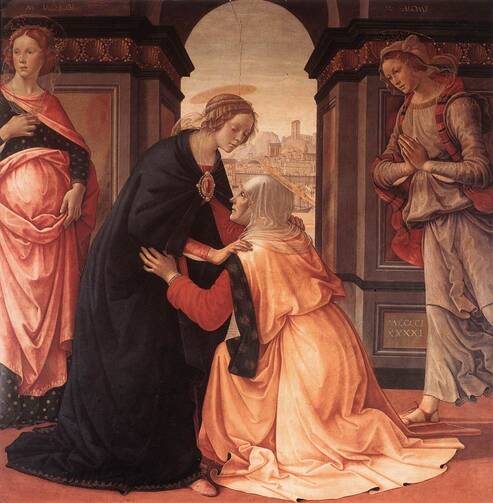Imagine how many words are exchanged in the course of a love. It wouldn’t be much of a relationship if you could count them. If we knew a significant bond was about to begin, we would no doubt note our opening words, but when is that foreknowledge granted? Sometimes we know that a relationship is coming to a close, and then we mark our words. My parents had good deaths, as they say. Illness announced that the end was near. There was time to prepare, though what is that but picturing the unimaginable, life without the one we love?
Final words often echo in the memory. Not necessarily the last spoken yet impressed upon the memory without forewarning or choice. My Father was agitated the day before he died. I sat with him and read Scripture passages. He thanked me. Even at the end, he was self-effacing and gracious. I remember him asking me, “I’m not long for this world, am I?”
“No, Dad. You’re not.”
With my mother, it was the final rosary. How many of those had she recited? For so many years, her days began by making coffee and settling into her armchair, prayer book and beads in hand. I remember being grateful that Our Lady’s words were among the last we would share. I couldn’t think of earthly ones that would serve. My siblings and I were sobbing so hard. She was resolute.
Life is awash with words. We chatter away, until we realize how much our words matter. Then we search and stumble. Small wonder that we sometimes retreat to inherited lines, shallow lyrics or memorized prayers. How is the soul supposed to bespeak its very self?
In St. Luke’s Gospel, when Elizabeth, Zechariah and Mary hear the unimaginable, they fall into canticles of the covenant. Israel’s words of praise become their own.
At the center of every Eucharist stand words whose significance most Christians fail to recognize. We know that they come from Jesus, the night before he died. Catholics kneel for what we call “the words of institution.” Bread and wine are ready to become the body and blood of the Lord. But Jesus didn’t leave the church with an incantation, repeated words to make a miracle. He left us an act of witness, a testament of his very identity. The night before he died, Jesus gave thanks to God according to the manner of his people. He praised God for his goodness. What else can one give to God, other than the recognition, which our words render?
The Gospels are quite clear that he did this knowing that he was about to enter the dark silence of death. Drawing the apostolic band to himself, he gave himself to them and to his Father in the cadences of Israel’s covenant. Words of praise. Words of thanksgiving.
Jesus didn’t fall back upon the promises of Israel. No. Quite simply, he had become them. He was God’s goodness, God’s fidelity, God’s compassion. Speaking to his own, he could call the covenant his own. He was word made flesh, word fulfilling the promises of Israel, sealing them in his blood.
At every Eucharist, at his command, the church echoes his last words. Last, because they come at the end of his life. Last, because nothing more can be said. They bespeak his very soul, his gift of self.
Micah 5: 1-4a Hebrews 10: 5-10 Luke 1: 39-45








